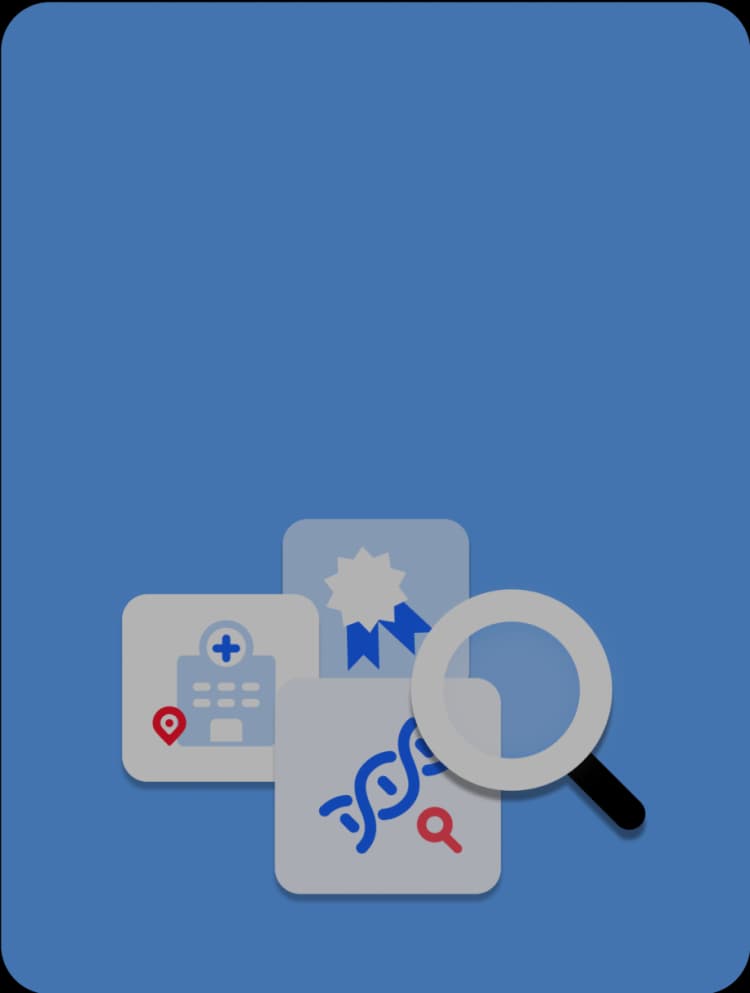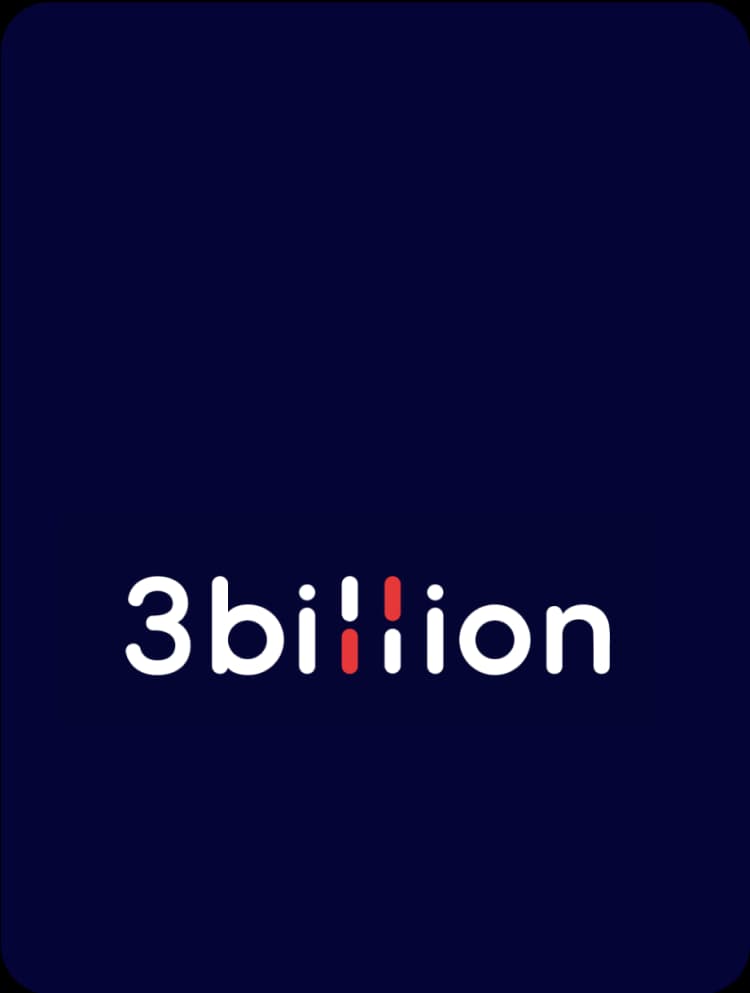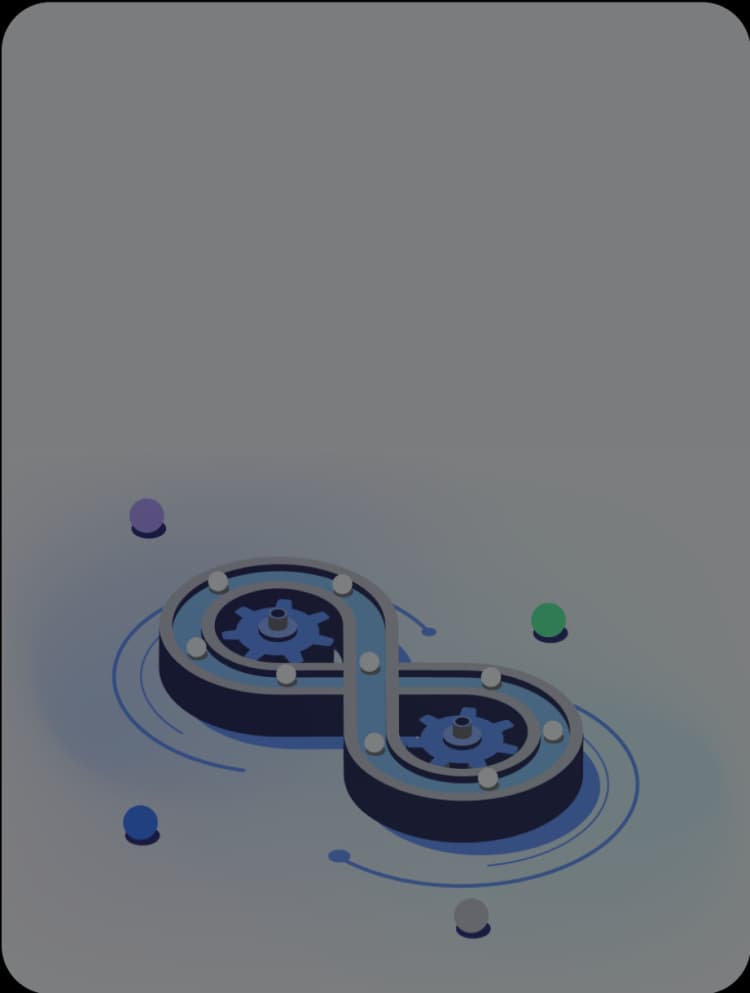Have You Been Left Undiagnosed After a Genetic Test?
It can be quite discouraging to discover that you have an undiagnosed medical condition after undergoing genetic testing. However, with the rapid advancements in genetic research, reanalysis offers new hope. Recent studies indicate that reanalyzing genetic data can significantly improve diagnostic rates, reflecting ongoing advancements in the field.
A 2019 study revealed that reanalysis within five years nearly doubled diagnostic rates from 24.8% to 46.8%. Another study led by the Murdoch Children’s Research Institute emphasized that reanalysis of genetic data could improve diagnostic rates by up to 32%. This enhancement is attributed to growing efficacy in genetic testing methodologies and data interpretation.
How Reanalysis of Genetic Data Contributes to Increased Diagnostic Yield
- Discovery of New Genetic Markers
According to the International Cooperation to Enable the Diagnosis of All Rare Genetic Diseases, with the development of NGS technology, 200-260 rare genetic diseases (RGD) are discovered annually. Initial tests might miss these due to the limited knowledge available
The data shows a steady number of discoveries with conventional methods until 2000, after which there’s a sharp increase coinciding with the adoption of NGS. By 2016, NGS leads to significantly more gene discoveries than conventional methods, highlighting the impact of NGS technology on the acceleration of genetic research.
Approximate Number of Gene Discoveries Made by WES and WGS versus Conventional Approaches since 2010 according to OMIM Data
- Emergence of New Symptoms
New symptoms can develop over time, providing additional clues that were not present or recognized in the initial assessment. These can provide essential clues that were not considered in the initial diagnosis - Technological Advancements in Genetic Analysis
The diagnostic rate of rare diseases continues to increase rapidly through advances in AI technology, algorithms, hardware, data accumulation and integration, and utilization of various databases. Advancements in technology make it possible to conduct multiple analyses, such as CNV(Copy Number Variation), SV(Structural Variant), and mtDNA Analysis with NGS genetic information, leading to more rare genetic disease diagnoses. - The Rise in Rare Genetic Diseases(RGD) Discoveries
Data reveals a yearly average of 259 new RGDs from 2012 to 2015, split between novel disease-gene links and new relations for known genes. This underscores the significant role of WES in decoding genetic diseases, especially those with de novo mutations, and reflects a crucial phase of genetic discovery.
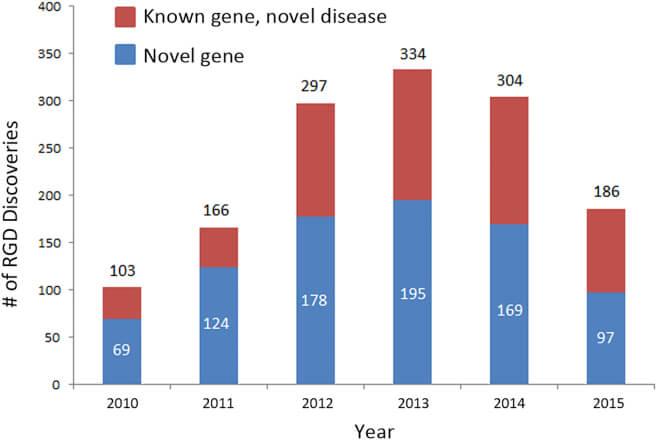
Continuous Reanalysis: A New Standard
The American College of Medical Genetics (ACMG) recommends that genetic data for undiagnosed patients be reanalyzed at least once every two years to incorporate new research and findings. However, at 3billion, we take this a step further by conducting reanalysis daily, at no additional cost to patients or healthcare providers. This approach not only keeps pace with the rapid advancements in the field but also alleviates the financial and emotional burdens often associated with prolonged diagnostic processes.
Case of a 2-year-old patient with Radio-Tartaglia syndrome
At 3billion, our commitment to reevaluating genetic data on a daily basis has successfully resolved numerous complex diagnostic challenges, bringing solace to affected families.
Take the case of a 2-year-old East Asian male who presented with hypotonia, hearing loss, and other developmental delays. His first genetic assessment in February 2021 failed to pinpoint the issue, resulting in a negative outcome. Yet, this was not the end of the diagnostic journey. A reanalysis placed the case in the inconclusive category weeks later, sparking further investigation. By May 2021, after seven weeks and continuous reanalysis that integrated fresh genomic data, the young patient was positively diagnosed with Radio-Tartaglia syndrome, a rare genetic disorder.
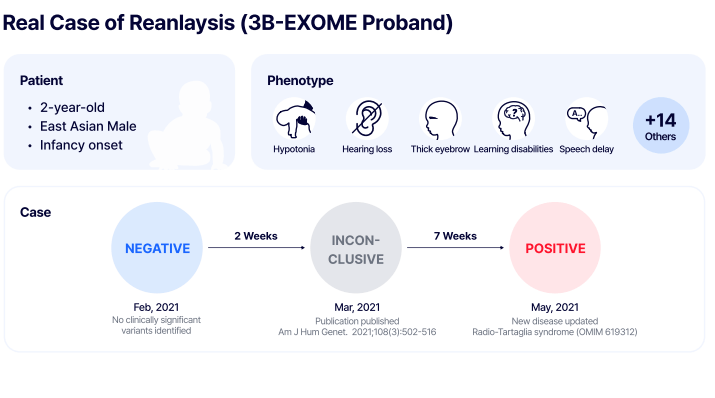
Are you ready to explore how 3billion’s advanced genetic testing and reanalysis capabilities have ended countless diagnostic odysseys?
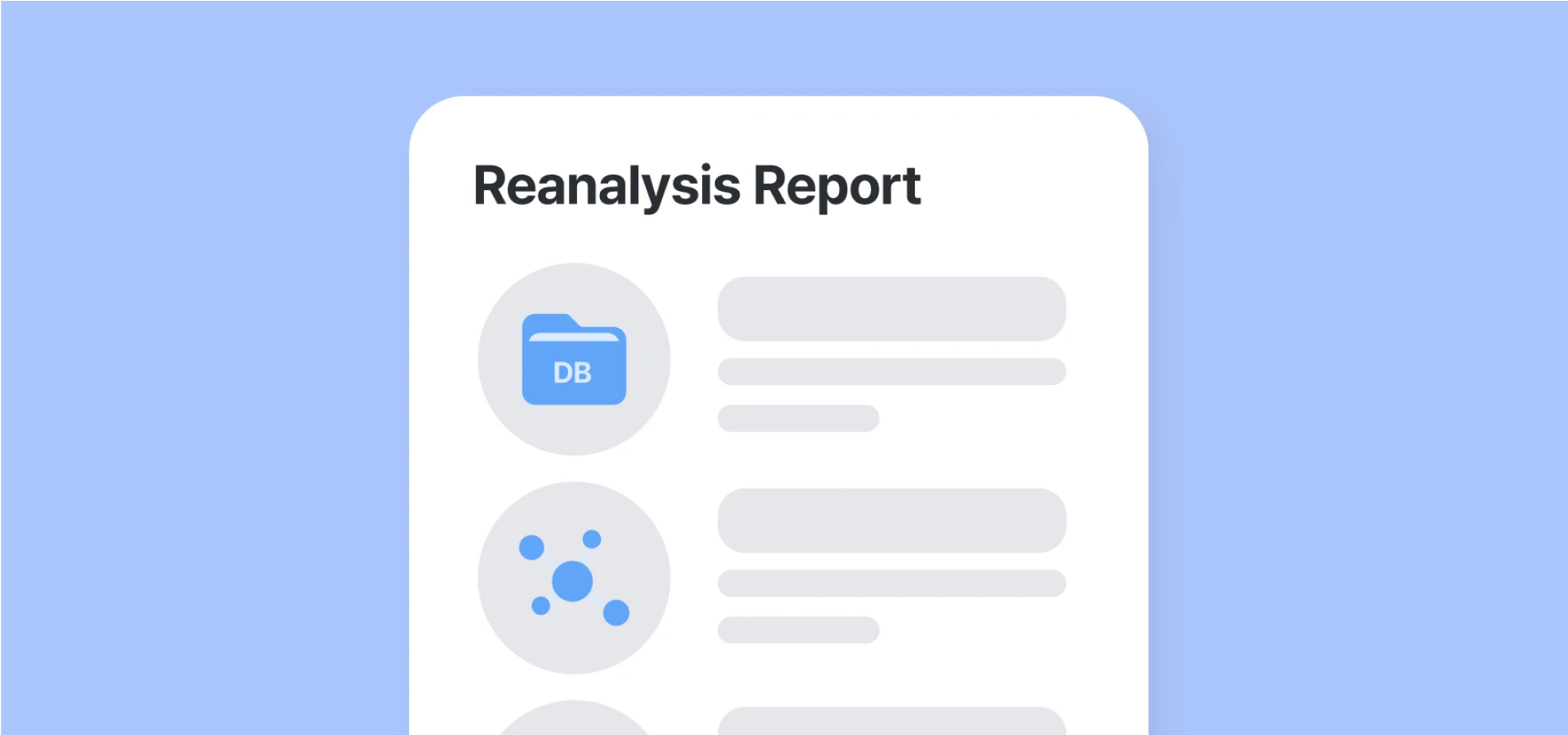
Curious How We Boost Diagnostic Accuracy?
Get the newsletter every month and discover the breakthroughs with the latest reanalysis report.
Get exclusive rare disease updates
from 3billion.

Sookjin Lee
Expert in integrating cutting-edge genomic healthcare technologies with market needs. With 15+ years of experience, driving impactful changes in global healthcare.



